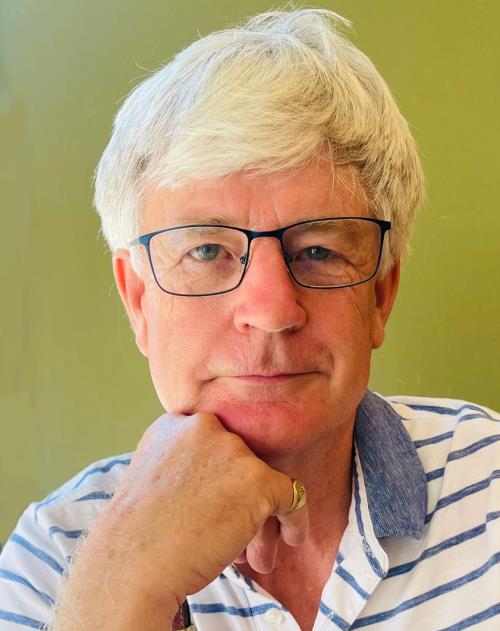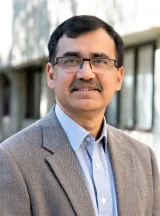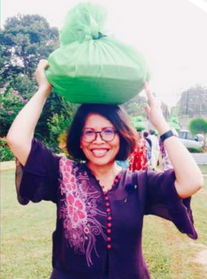Reimagining the Interface between Digital Tech and the Physical Environment
DESC/UNESCO Chair in ICT4D, Royal Holloway, University of London
Session 204
This session will be convened by DESC (the Digital Environment System Coalition - Secretariat provided by the UNESCO Chair in ICT4D at Royal Holloway, University of London), in association with INIT (the Inter-Islamic Network on IT), the WWRF (Wireless World Research Forum), ICT4D.AT, and RC-DISC (the Research Cluster for Digital Inequality and Social Change at the University of Canberra). It has three main aims:
- to share an updated overview of DESC's emerging model that challenges much existing work being undertaken on digital tech and climate change;
- to provide an update on its ongoing activities since WSIS 2022; and
- to do this in a lively and interactive way.
It will also provide an introduction to the framework it is crafting for the ITU's Partner2Connect (P2C) initiative that enables partners better to understand the environmental effects of their interventions.
This session is being preceded by a DESC Walk (Session 403) on Thursday 16th from 16.00-18.30 (departing main entrance of CICG in Geneva) where we will be discussing aspects of the interface between difgital tech and the environment, taking in key points of significance for the biosphere, atmosphere, hydrosphere and lithosphere (probably including the Parc Mon Repos, Poste Filiale, Pont des Bergues and Ile Rousseau, and the Auditoire de Calvin). The outcomes of these discussions will also be presented during this session on 17th March.

Tim Unwin CMG is Chairholder of the UNESCO Chair in ICT4D and Emeritus Professor of Geography at Royal Holloway, University of London. He was Secretary General of the Commonwealth Telecommunications Organisation from 2011-2015, was Chair of the Commonwealth Scholarship Commission from 2009-2014, and over the last decade has worked closely with UN agencies such as the ITU, UNESCO and UNICEF. His influential edited book Information and Communication Technologies for Development, was published by CUP in 2009, and his latest book Reclaiming ICT4D was published by OUP in 2017. His research focuses on the inequalities caused by the use of digital technologies. In 2020 he led the production of a report on Education for the Most Marginalised post-COVID-19: Guidance for governments on the use of digital technologies in education funded by the World Bank and DFID, and in 2021 he launched the Digital-Environment System Coalition (DESC) to change global understanding of the impact of digital technologies on the physical environment. He is an inspirational speaker, highly effective leader, and internationally respected author, with 16 books and more than 250 other publications to his credit.

Paul Spiesberger has been the chairman of ICT4D.at since 2014 and in his spare time enjoys using his skills for the common good. He is also a member of DESC. He graduated as a computer scientist with a focus on media informatics from the Vienna University of Technology, where he is currently also doing his PhD. He works with INSO (the Research Group for Industrial Software) as a researcher and lecturer in the field of mobile technologies and ICT4D. He is currently employed as a software developer for mobile technologies within a fast growing Austrian company. He has won several national and international awards for his innovative work at Os – a collective to tackle social issues through the use of ICTs.

Dr. Ahmed Imran (Information Systems researcher at the University of Canberra) is Leader of the Research Cluster for Digital Inequality and Social Change (RC-disc) and has special interests in the strategic use of IT, eGovernment, ICT4D and socio-cultural impacts of ICT. He is also a member of DESC. His current research includes IT innovation and design, child online protection, organizational/societal transformations through ICT, and the short- and long-term influence of IT in shaping the societies of the future. He has recently implemented an action design research project in Bangladesh funded by AusAID that has made a significant impact on the country’s capacity building in the area of e-government. He is also the Lead author of the textbook “eGovernment Management for developing countries”.

A member of YouthDESC, Tasfia is a Graduate Research Assistant at the University of Canberra, with research interests in feminism, intersectionality and the capabilites approach in understanding the social impact of digital technologies.

Poline is Director of the Institute of Borneo Studies, Associate Professor in the Department of Anthropology and Sociology within the Facuity of Social Sciences and Humanities, Chief Editor of the Journal of Borneo Kalimantan, Head of Dayak Research Chair, and Research Fellow of the Instiyute of Social Informatics and Technological Innovations at Universiti Malaysia Sarawak (UNIMAS). She is is also a member of DESC, working specificalluy on understandings the relationships between digitsal tech and indigenous societies.
-
 C1. The role of governments and all stakeholders in the promotion of ICTs for development
C1. The role of governments and all stakeholders in the promotion of ICTs for development
-
 C2. Information and communication infrastructure
C2. Information and communication infrastructure
-
 C6. Enabling environment
C6. Enabling environment
-
 C7. ICT applications: benefits in all aspects of life — E-environment
C7. ICT applications: benefits in all aspects of life — E-environment
-
 C7. ICT applications: benefits in all aspects of life — E-agriculture
C7. ICT applications: benefits in all aspects of life — E-agriculture
-
 C7. ICT applications: benefits in all aspects of life — E-science
C7. ICT applications: benefits in all aspects of life — E-science
-
 C10. Ethical dimensions of the Information Society
C10. Ethical dimensions of the Information Society
-
 C11. International and regional cooperation
C11. International and regional cooperation
This session is about fundamentally reassessing the ways through which the design and use of digital tech interacts with the physical environment. DESC's aims are to developing a holistic model of these interactions that examines both the positive and negative impacts of tech on the environment, going far beyond the current focus of attention largely on climate change. It seeks ultimately to develop a new way of understanding these interactions that can mitigate the harms of digtal tech thus enabling its benefits to be experienced by all.
It is therefore directly related to many of the Action Lines, but especially
- C7 e-Environment - DESC explicitly addresses the physical environment in its totality
- C7 e-Agriculture - agricultural production is one of the main ways through which humans engage with, and must sustain the physical environment
- C7 e-Science - this initiative is driven by an interest in the highest possible quality of science to inform policy making and practice
- C10 -there are profund ethical implications around our use and exploitation of the environment
- C11 - these issues are global in scale, and require close internationbal and regional co-operation
- C1 - all stakeholders need to be engaged
- C2 - ICT infrastructures are one of the main means through which environmental harms are caused
- C6 - interpreted broadly, the "enabling envuronment" is an integral dimension of the physical environment.
-
 Goal 7: Ensure access to affordable, reliable, sustainable and modern energy for all
Goal 7: Ensure access to affordable, reliable, sustainable and modern energy for all
-
 Goal 9: Build resilient infrastructure, promote sustainable industrialization and foster innovation
Goal 9: Build resilient infrastructure, promote sustainable industrialization and foster innovation
-
 Goal 10: Reduce inequality within and among countries
Goal 10: Reduce inequality within and among countries
-
 Goal 11: Make cities inclusive, safe, resilient and sustainable
Goal 11: Make cities inclusive, safe, resilient and sustainable
-
 Goal 12: Ensure sustainable consumption and production patterns
Goal 12: Ensure sustainable consumption and production patterns
-
 Goal 13: Take urgent action to combat climate change and its impacts
Goal 13: Take urgent action to combat climate change and its impacts
-
 Goal 14: Conserve and sustainably use the oceans, seas and marine resources
Goal 14: Conserve and sustainably use the oceans, seas and marine resources
-
 Goal 15: Sustainably manage forests, combat desertification, halt and reverse land degradation, halt biodiversity loss
Goal 15: Sustainably manage forests, combat desertification, halt and reverse land degradation, halt biodiversity loss
-
 Goal 17: Revitalize the global partnership for sustainable development
Goal 17: Revitalize the global partnership for sustainable development
DESC aims to provide a new way of considering the intersection of digitsal tech and the environment to be implemented post-Agenda 2030 and the SDGs. It is built in part through a reconsideration of whether "sustainability" and the economic "growth" (development) agenda are indeed compatible. It is therefore deeply concerned with all of the SDGs, but among the mostr important are:
- 7 - sustainable energy production and storage that does not harm the environment are essential - ICTs (as currently designed and implemented) are one of teh main contributers to global energy demand.
- 9 - we need to have a refocusing of the entire digital tech sector so that it does indeed prpomote sustainable industrialization - this goes way beyond juyst reducing carbon emissions and e-waste
- 10 - inequalities are enhanced through the ways in which the ICT exploits the physical envuronment
- 11 - much emphasis has been placed on so-calloed "smart" cities - but their use of digital tech to achieve this is a yet further way throigh which urban dwellers exploit their rural brothers and sisters.
- 12 - the ICT sector is in many ways "unsustainable" as it is currently designed, with its emphasis on "fast fashion" and inbuilt cycles of planned obsolescene - production patterns need to change
- 13 - the global focus on the harms of climate change, and the emphasis of the digital tech sector mainly on reducing its carbon imprint has had zseriously adverse impoacts on other dimensions of the environment
- 14 - demand for rare earth minerals for use in digital tech is having a seriousley adverse impact oln the oceans, especially through deep sea mining (proposed and ongoing)
- 15 - DESC is exploring the extent to which desertification, land degradation and biodiversity loss are imopacted by digital tech, While it is widely recognsed that digital tech can indeed be used to monitor and alleviate such environmental indicators, we need to know much more about their harmful contribution so that a balanced understanding can be achieved.
- 17 - DESC can only achieve its ambitious aims through a completely revitalized global partnership based on a comprehensive understanding of the balance between positive and negative aspects of digital tech.
DESC is a bottom-up coalition, involving many partners, researchers and practitioners.
The DESC site can be accessed at http://desc.global or https://ict4d.org.uk/DESC
The lead partners involved for this session are:
- UNESCO Chair in ICT4D, Royal Holloway, University of London https://ict4d.org.uk
- INIT (the Inter-Islamic Network on IT) http://www.init.org.pk/
- WWRF (Wireless World Research Forum) https://wwrf.ch/
- ICT4D.AT https://www.ict4d.at/
- RC-DISC (the Research Cluster for Digital Inequality and Social Change at the University of Canberra) https://www.canberra.edu.au/about-uc/faculties/SciTech/research/rc-disc